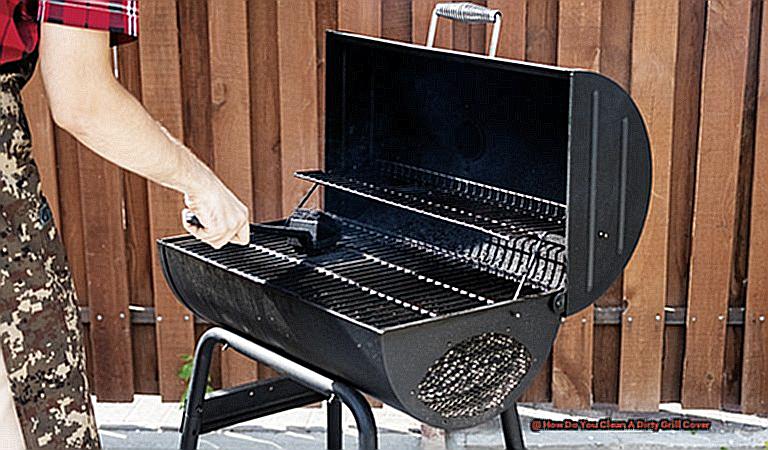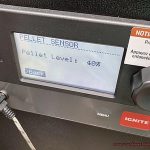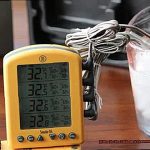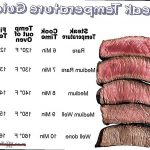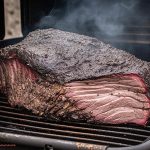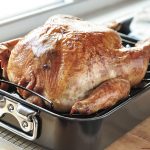Imagine this: the sun slowly sets, your friends and family are gathered around, indulging in the mouthwatering scent of your perfectly grilled feast. You’ve just pulled off another culinary triumph, basking in the joy of a successful barbecue.
But amidst the post-grill bliss, cleaning your trusty gas grill is probably the last thing on your mind. Fear not, my fellow grill enthusiasts.
In this comprehensive guide, we’ve got you covered with simple yet effective steps to clean your gas grill after each use. Get ready to keep it in top-notch condition for countless sizzling cookouts to come.
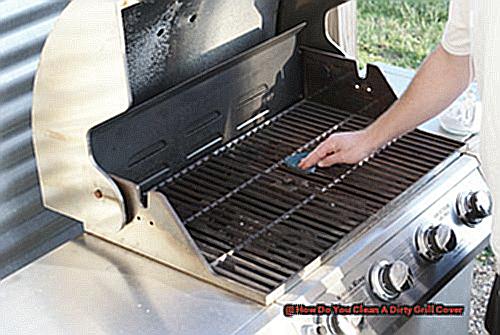
Contents
How do you clean a gas grill after each use?
Step 1: Preparing for a Seamless Cleanup
Before diving into the details, make sure your grill has completely cooled down. Safety first, folks. Disconnect the propane or turn off the gas supply to prevent any unexpected flare-ups. Now, let’s roll up our sleeves and get down to business.
Step 2: Wiping Away the Grime
Let’s start with the grates – the heart and soul of your grill. Gently remove them and give those bad boys a good scrub using a wire brush. Make sure to eliminate all traces of food remnants or grease. Some stubborn debris might require a little extra elbow grease, but trust me – it’s worth it.
Step 3: Bid Adieu to Ashes and Debris
Spot any ash or loose debris lurking inside? No worries. Grab a trusty vacuum or a dedicated grill ash sweeper and carefully suck out any hidden ash, soot, or remnants from every nook and cranny. We leave no stone unturned (or grill uncleaned).
Step 4: Give It a Sudsy Bath
Time to bring out the soap. Fill up a bucket with warm, soapy water and grab a non-abrasive sponge or cloth. Dip your cleaning weapon of choice into the soapy goodness and wipe down every inch of your grill’s exterior surfaces. Work away any grease, grime, or sauce splatters. Don’t forget to give some love to the knobs, handles, and control panel – they deserve a thorough scrub-down too.
Step 5: Rinse, Rinse, Rinse.
Now it’s time to give your grill a refreshing shower. Rinse off any lingering traces of soap to ensure no sudsy residue ends up on your next grilling masterpiece
Why Is It Important to Clean Your Gas Grill After Each Use?
Cleaning your gas grill after each use is essential for maintaining its performance and extending its lifespan. There are several reasons why it is important to clean your grill regularly:
- Food Safety: When food particles and grease are left on the grill grates, they can build up over time and become a breeding ground for bacteria. This can lead to food contamination and potential health risks for you and your family.
- Flare-up Prevention: Grease accumulation on the grates can ignite and cause flames to flare up, which can not only damage your grill but also pose a safety hazard. Regular cleaning removes grease and reduces the risk of flare-ups, allowing you to enjoy a safer grilling experience.
- Even Heat Distribution: Grease buildup on the grates can block the flow of heat, resulting in uneven cooking. By cleaning the grill regularly, you can ensure that heat is evenly distributed across the cooking surface, allowing your food to cook more evenly and preventing any hot spots or cold zones.
- Improved Taste: When leftover food particles and grease accumulate on the grates, they can impart a burnt or stale flavor to your grilled dishes. By keeping your grill clean, you can ensure that your food tastes fresh and delicious every time you cook.
- Easier Future Cleaning: If you neglect cleaning your grill after each use, the buildup of grease and food particles becomes more challenging to remove. It may require more time, effort, and even harsh chemicals to get rid of stubborn stains and grime. By cleaning your grill regularly, you save yourself from the hassle of deep cleaning in the long run.
- Aesthetic Appeal: A dirty and neglected grill not only looks unappealing but may also discourage you from using it. By keeping your grill clean and well-maintained, you can enjoy a visually pleasing cooking appliance that is ready to use whenever you want to fire it up.
Step-by-Step Guide to Cleaning a Gas Grill
Grilling season is here, and that means it’s time to get your gas grill in tip-top shape. Follow this comprehensive and engaging step-by-step guide to ensure your grill is clean, safe, and ready for some delicious barbecue.
- Prepping your grill: Safety first. Turn off the grill and let it cool down completely before starting the cleaning process. This step is essential to prevent accidents or burns.
- Remove the grates: Most gas grills have removable grates that you can easily lift off. Take them out and set them aside for cleaning.
- Brush away debris: Grab a wire brush or grill brush and vigorously scrub away any loose debris or food particles from the grates. Scrub both sides thoroughly to ensure they are clean and ready for the next cookout.
- Clean the burner protectors: Lift out the metal plates or ceramic briquettes that cover the burners. These protective layers can be cleaned with warm, soapy water and a sponge. Rinse them well and make sure they are completely dry before putting them back.
- Scrub the burners: Take a brush or even a toothbrush and gently scrub the burners to remove any grease or residue. Pay special attention to the burner holes, ensuring they are clear of any blockages that could affect the flame.
- Wipe down the interior: Use a damp cloth or sponge to wipe down the inside walls of the grill. If there are stubborn stains or grease buildup, you can use a mild detergent or a specialized grill cleaner. Avoid using harsh chemicals that can damage the grill’s finish.
- Empty and clean the drip tray: The drip tray collects grease and other drippings during cooking, so it’s important to keep it clean. Slide it out and discard any contents. Wash it with warm, soapy water and scrub off any residue. Rinse it thoroughly and let it air dry before placing it back in the grill.
- Clean the exterior: Don’t forget about the outside of your gas grill. Wipe down the exterior with a damp cloth or sponge to remove any dirt or grease buildup. If there are stubborn stains, you can use a stainless steel cleaner or make a mixture of vinegar and water for a natural cleaning solution.
- Reassemble and check for gas leaks: Once all the parts are clean and dry, reassemble the grill, making sure everything is properly aligned. Before firing up the grill again, check for any gas leaks by applying a mixture of soapy water to the gas connections. If you see bubbles forming, there may be a leak, and you should have it inspected and repaired before using the grill.
- Regular maintenance: Cleaning your gas grill after each use is important, but regular maintenance is also key to keeping it in good condition. This includes periodically deep cleaning the grates and burners, checking for any rust or damage, and ensuring all parts are functioning properly.
Tips for Keeping Your Gas Grill Clean and Working Properly
To start, preheat your gas grill for about 15 minutes to loosen any grease or food residue that may be stuck on the grates or inside the grill. This will make it easier to clean.
Once the grill is preheated, use a grill brush with stainless steel bristles to thoroughly clean the grates. Make sure to remove any leftover food particles or debris that may have accumulated. The wire brush will help scrub away any stubborn residue, leaving your grates clean and ready for the next use.
Cleaning the Burner Tubes and Drip Tray
The burner tubes are an important component of your gas grill as they distribute heat evenly. Over time, these tubes can become clogged with grease and other debris, affecting the performance of your grill. To clean them, carefully remove the burner tubes and use a wire brush or a pipe cleaner to remove any buildup. This will ensure that your burners are free from obstructions and working properly.
Additionally, it is crucial to regularly check and clean the drip tray, which is located underneath the grill. The drip tray catches any grease or drippings from your food during cooking. If not cleaned regularly, it can lead to flare-ups and affect the overall functioning of your grill. Remove the tray and scrub it with warm soapy water, then rinse and dry thoroughly before placing it back in the grill.
Wiping Down the Exterior
While cleaning the interior components of your gas grill is essential, do not forget to give the exterior some attention as well. Use a damp cloth or sponge to wipe down the outside of the grill, removing any dirt or grime that may have accumulated over time.
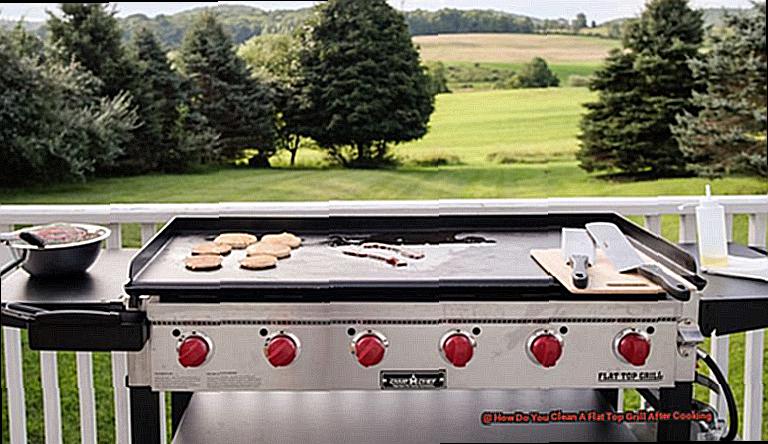
It is important to avoid using abrasive cleaners or scouring pads as they can damage the finish of your grill. Opt for gentle cleaning solutions and materials that will effectively clean your grill without causing any harm.
Cleaning the Control Knobs and Replacing Worn-Out Parts
The control knobs on your gas grill can also accumulate dirt and grease over time. To clean them, remove them from the grill and wash them with warm soapy water. Rinse and dry them thoroughly before placing them back on the grill. This will ensure that your knobs are clean and functioning properly, allowing you to easily control the temperature of your grill.
Regular maintenance of your gas grill includes checking for any worn-out or damaged parts that may need to be replaced. This can include things like worn-out grates, rusted burner tubes, or cracked control knobs. Check the manufacturer’s recommendations for your specific grill model and replace any necessary parts to ensure optimal performance.
Proper Storage
When not in use, it is important to store your gas grill properly to protect it from the elements. If possible, cover your grill with a weatherproof grill cover to prevent rust and other damage caused by exposure to moisture. Additionally, make sure to store your propane tank in a well-ventilated area away from any heat sources.
How to Dispose of Grease and Food Residue After Cleaning
To dispose of grease and food residue after cleaning a gas grill, it’s crucial to ensure that the grill has completely cooled down before starting the cleaning process. This is important for both your safety and the effectiveness of the cleaning.
When you finish grilling, it’s natural for the grill to still be hot, so it’s essential to exercise caution during this time. Touching hot surfaces can result in burns, so always wait until the grill has cooled down enough to touch without discomfort.
By allowing the grill to cool completely, you also give the grease and food residue a chance to solidify. This makes it easier to remove and dispose of properly. Trying to clean a hot grill can be more challenging and potentially dangerous, as the high temperature can cause splattering or steam that could cause burns.
Essential Tools for Cleaning a Gas Grill
Cleaning a gas grill is a crucial step in maintaining its performance and prolonging its lifespan. To effectively clean your gas grill, you need the right tools at your disposal. Here are the essential tools you’ll need and their purpose:
- Grill brush: A sturdy grill brush with stiff bristles is a must-have tool for removing food residue and grease from the grates. Look for a brush with a long handle that allows you to reach all areas of the grill comfortably. The bristles should be made of durable material, such as stainless steel, for effective scraping and scrubbing. Regularly using a grill brush helps prevent buildup and maintains optimal cooking conditions.
- Scraper or putty knife: A scraper or putty knife comes in handy for removing stuck-on debris from the grates or other surfaces inside the grill. Opt for a tool with a long, flat blade that can easily slide between the grates and dislodge any stubborn residue. Be cautious while using a scraper to avoid scratching or damaging the surfaces of your grill.
- Heat-resistant gloves: Safety should always be a priority when cleaning a gas grill. Heat-resistant gloves protect your hands from hot surfaces and prevent burns while handling hot grates or other parts of the grill. Look for gloves specifically designed for high-temperature use, preferably made of materials like silicone or aramid fiber that can withstand heat without melting or becoming damaged.
- Cleaning solution or degreaser: To ensure a thorough clean, you’ll need a cleaning solution or degreaser. There are several options available, including commercial grill cleaners or homemade solutions using ingredients like vinegar or baking soda. Choose a cleaner that is safe for use on your specific grill, following the manufacturer’s recommendations. Some cleaners may require you to let the solution sit for a certain period before scrubbing, while others can be sprayed directly onto the surfaces and wiped away.
- Bucket of warm soapy water and sponge or cloth: Cleaning the exterior surfaces of your gas grill is just as important as cleaning the grates. Use a bucket of warm soapy water to wipe away any dirt or grime from the hood, control knobs, and other accessible parts. Opt for a sponge or cloth with a non-abrasive surface to avoid scratching or damaging the grill’s finish.
When purchasing these essential tools, you can find them at home improvement stores, outdoor cooking supply shops, or even online retailers. It’s advisable to invest in good quality tools that are built to last and withstand the rigors of regular cleaning.
Common Mistakes to Avoid When Cleaning a Gas Grill
Cleaning a gas grill may seem like a straightforward task, but there are some common mistakes that many people make. To ensure that your grill remains clean, safe, and in optimal working condition, it’s important to avoid these pitfalls. Here are the top mistakes to steer clear of when cleaning your gas grill:
- Neglecting to preheat the grill: Before diving into the cleaning process, take the time to properly preheat your grill. By preheating for about 10-15 minutes on high heat, you’ll loosen any stuck-on food particles and grease, making it easier to clean the grill grates and interior surfaces.
- Using a troublesome wire brush: It’s tempting to grab a wire brush to tackle those stubborn grill grates, but beware. Wire brushes with bristles can easily break off and end up in your food, which is definitely not what you want on your plate. Instead, opt for a safer and more effective option like a grill brush with nylon bristles or a grill scraper.
- Overlooking the burner tubes: The burner tubes of your gas grill play a crucial role in its performance. Unfortunately, they often get clogged with grease and food debris. To avoid this issue, make sure to regularly inspect and clean the burner tubes using a brush or a pipe cleaner. This will ensure proper gas flow and keep your grill running smoothly.
- Using harsh chemicals or abrasive cleaners: While it may be tempting to reach for strong chemicals or abrasive cleaners, they can actually do more harm than good. These products can damage the grill’s surfaces and leave behind unwanted residues. Instead, stick to mild dish soap and warm water for cleaning the grates and surfaces. For a natural cleaning solution, mix vinegar and water.
- Forgetting to clean the grease collection tray or cup: The grease collection tray or cup is often overlooked during cleaning, but it’s a crucial step. This tray collects grease drippings during cooking and can become a fire hazard if not cleaned regularly. Make sure to remove the tray or cup, empty the grease, and wash it thoroughly with warm soapy water before placing it back in the grill.
- Neglecting to cover the grill: Your gas grill deserves some protection when not in use, so don’t forget to cover it up. Leaving your grill exposed to the elements can lead to rust and other damage over time. Invest in a high-quality grill cover and use it consistently to safeguard your grill and prolong its lifespan.
How Often Should You Clean Your Gas Grill?
Regularly cleaning your gas grill is crucial for maintaining its performance and extending its lifespan. The frequency of cleaning depends on how often you use your grill, but as a general rule, it is recommended to clean it after every use. This prevents the accumulation of grease, food particles, and debris that can affect the flavor of your food and potentially become a fire hazard.
Neglecting to clean your grill regularly can result in a buildup of grease, which not only attracts insects and rodents but also leads to unpleasant odors. Furthermore, regular cleaning helps prevent rusting and corrosion of the grill components, ensuring that it stays in good working condition for longer.
Different parts of the gas grill require different cleaning schedules. For example, the cooking grates should be cleaned after each use to remove any residue. On the other hand, the drip tray and burner tubes may need less frequent cleaning, depending on how often you grill.
Signs that indicate your gas grill needs cleaning include excessive smoke during cooking, uneven heating, and a lingering smell of burned food from previous cookouts. If you notice any of these signs, it’s time to give your grill a thorough cleaning.
A comprehensive cleaning should be done at least once a year, preferably at the beginning or end of the grilling season. This involves disassembling the grill and cleaning each component individually. Inspect for any signs of wear or damage while you clean.
Regular maintenance and cleaning not only ensure the best grilling experience but also contribute to food safety by reducing the risk of cross-contamination from leftover food residues. Additionally, maintaining a clean gas grill enhances the flavor of your food and saves you money by extending the life of your equipment.
To summarize:
- Clean your gas grill after every use.
- Pay attention to different parts: cooking grates after each use, drip tray and burner tubes less frequently.
- Signs that indicate cleaning is needed: excessive smoke, uneven heating, lingering smell of burned food.
- Deep clean at least once a year.
- Use the right materials and avoid harsh chemicals or abrasive cleaners.
- Preheat your grill before cooking and use safe alternatives to wire brushes.
- Regularly clean the grease collection tray or cup.
- Always cover your grill when not in use.
Benefits of Regularly Maintaining Your Gas Grill
Regularly maintaining your gas grill has numerous benefits that can enhance your grilling experience and prolong the lifespan of your grill. Here are the key advantages of regularly maintaining your gas grill:
- Prevents Buildup: Regular cleaning and maintenance prevent the buildup of grease, food particles, and debris on your grill grates and burners. This not only affects the flavor of your food but also poses a fire hazard. By cleaning your grill regularly, you ensure that it operates efficiently and safely.
- Rust Prevention: Cleaning and drying your grill after each use helps to prevent rust and corrosion. Exposure to elements like rain and humidity can cause metal parts to rust over time. By minimizing the risk of rust formation, you extend the life of your grill.
- Inspections and Replacements: Regular maintenance allows you to inspect and replace any worn-out or damaged parts of your gas grill. This includes checking the gas lines, valves, and ignition system for signs of wear or malfunction. Addressing these issues early on helps you avoid more costly repairs in the future and ensures that your grill functions properly.
- Improved Performance: Regularly maintaining your gas grill improves its overall performance. A clean grill heats more evenly, allowing you to achieve consistent cooking results. It ensures that the burners produce a steady flame and that the grill reaches the desired temperature quickly. By keeping your grill in optimal condition, you can enjoy better-tasting food and a more enjoyable grilling experience.
- Hygiene Practices: Maintaining your gas grill demonstrates good hygiene practices. Cleaning off leftover food or grease residue ensures safe cooking and prevents the growth of bacteria or mold that could contaminate your food. By keeping your grill clean, you can have peace of mind knowing that you are preparing meals in a sanitary environment.
Conclusion
Cleaning your gas grill after each use is essential to ensure its longevity and maintain optimal performance. Neglecting this crucial step can lead to a buildup of grease, food particles, and other debris that can not only affect the taste of your food but also pose a potential fire hazard.
To begin the cleaning process, make sure your grill has completely cooled down. Safety first. Once it’s cool, remove the cooking grates and brush off any excess food residue using a wire brush. This will prevent any leftover bits from sticking to your next meal.
Next, take a closer look at the burners. These are the heart of your grill and need proper care. Gently brush away any dirt or debris that may have accumulated on them. If you notice any clogs or blockages, use a thin wire or toothpick to clear them out.
Don’t forget about the grease trap. This little compartment is designed to catch drippings and prevent flare-ups. Empty it regularly to avoid overflow and potential grease fires. A simple wipe with warm soapy water should do the trick.
Now let’s tackle the exterior of your grill. Wipe down all surfaces with a damp cloth or sponge and mild detergent. This will remove any dirt or grime that may have accumulated during cooking sessions.
Lastly, don’t neglect your grill cover. Keeping it clean and free from dust will help protect your grill from the elements when not in use.
By following these simple steps after each grilling session, you’ll not only keep your gas grill looking shiny and new but also ensure its longevity and continued excellent performance for years to come.

